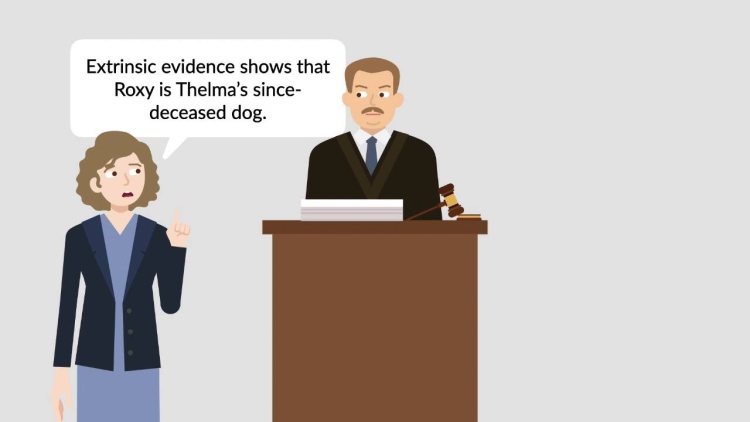Estate of Russell
California Supreme Court
444 P.2d 353 (1968)

- Written by Christine Raino, JD
Facts
Thelma L. Russell died testate with a validly executed holographic will. Thelma’s will left all of her real and personal property to Chester H. Quinn (defendant) and Roxy Russell, Thelma’s deceased dog. The will also left her 10-dollar gold piece and diamonds to Georgia Nan Russell Hembree (plaintiff), Thelma’s niece and only heir at law. Georgia petitioned for determination of heirship, alleging that half of the estate should pass to her under the laws of intestacy because the devise to Roxy Russell lapsed as a dog is not statutorily entitled to take under a will. Georgia offered extrinsic evidence to show that Roxy Russell was a dog alive at the time the will was executed but deceased when Thelma died. Chester offered extrinsic evidence to show that Thelma intended that the entire estate pass to Chester with the understanding that he would take care of Roxy, rather than as an outright gift to the dog. The evidence in support of this assertion consisted primarily of testimony by Chester that he discussed with Thelma taking care of Roxy if anything happened to her. Georgia objected to this extrinsic evidence of Thelma’s intent as inadmissible because the gift to Roxy was clear and unambiguous. The trial court found that Thelma intended Chester to receive the entire estate and the bequest to Roxy merely indicated her wish that he would care for the dog after her death. Georgia appealed to the California Supreme Court.
Rule of Law
Issue
Holding and Reasoning (Sullivan, J.)
What to do next…
Here's why 907,000 law students have relied on our case briefs:
- Written by law professors and practitioners, not other law students. 47,100 briefs, keyed to 996 casebooks. Top-notch customer support.
- The right amount of information, includes the facts, issues, rule of law, holding and reasoning, and any concurrences and dissents.
- Access in your classes, works on your mobile and tablet. Massive library of related video lessons and high quality multiple-choice questions.
- Easy to use, uniform format for every case brief. Written in plain English, not in legalese. Our briefs summarize and simplify; they don’t just repeat the court’s language.





